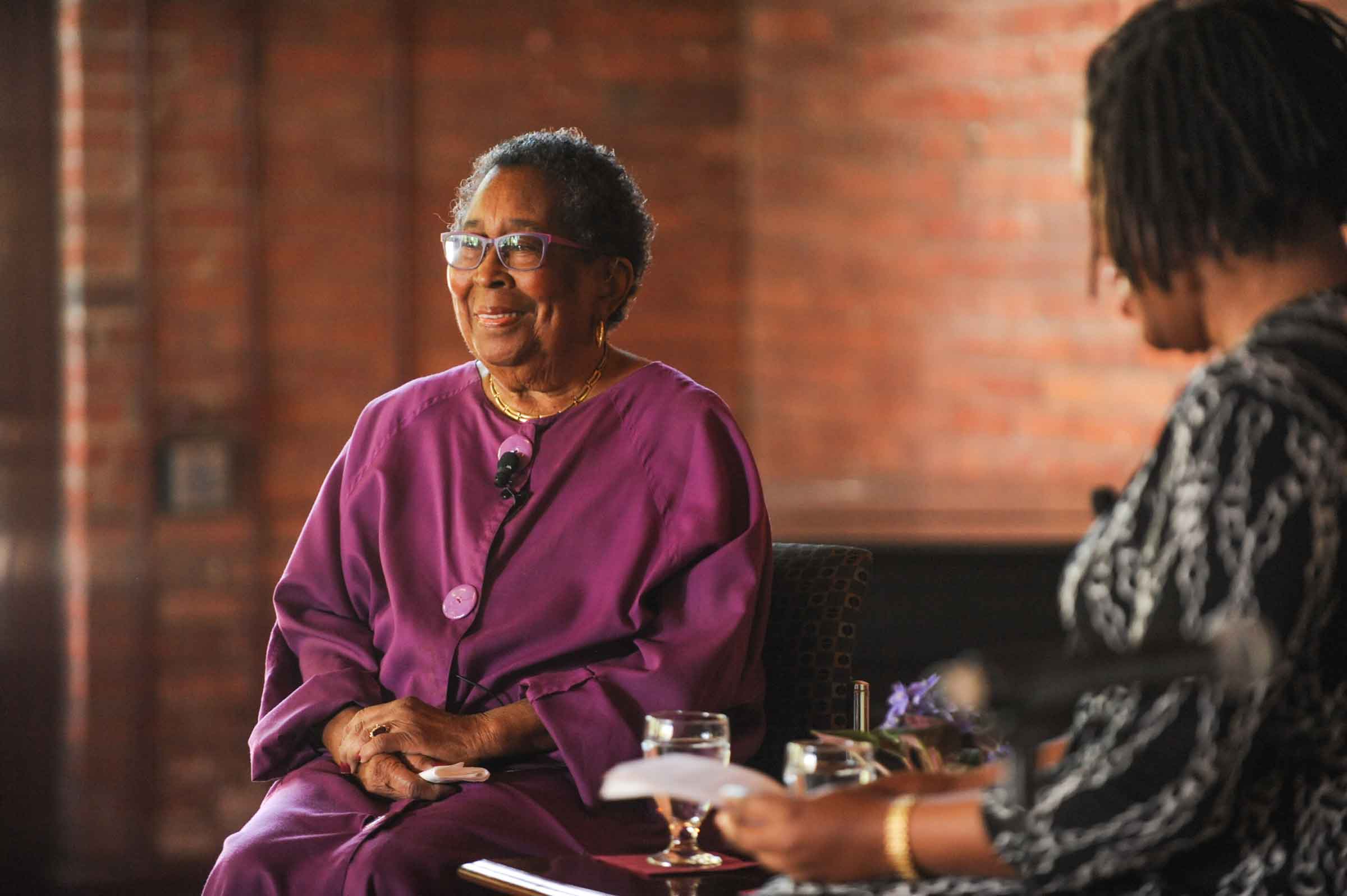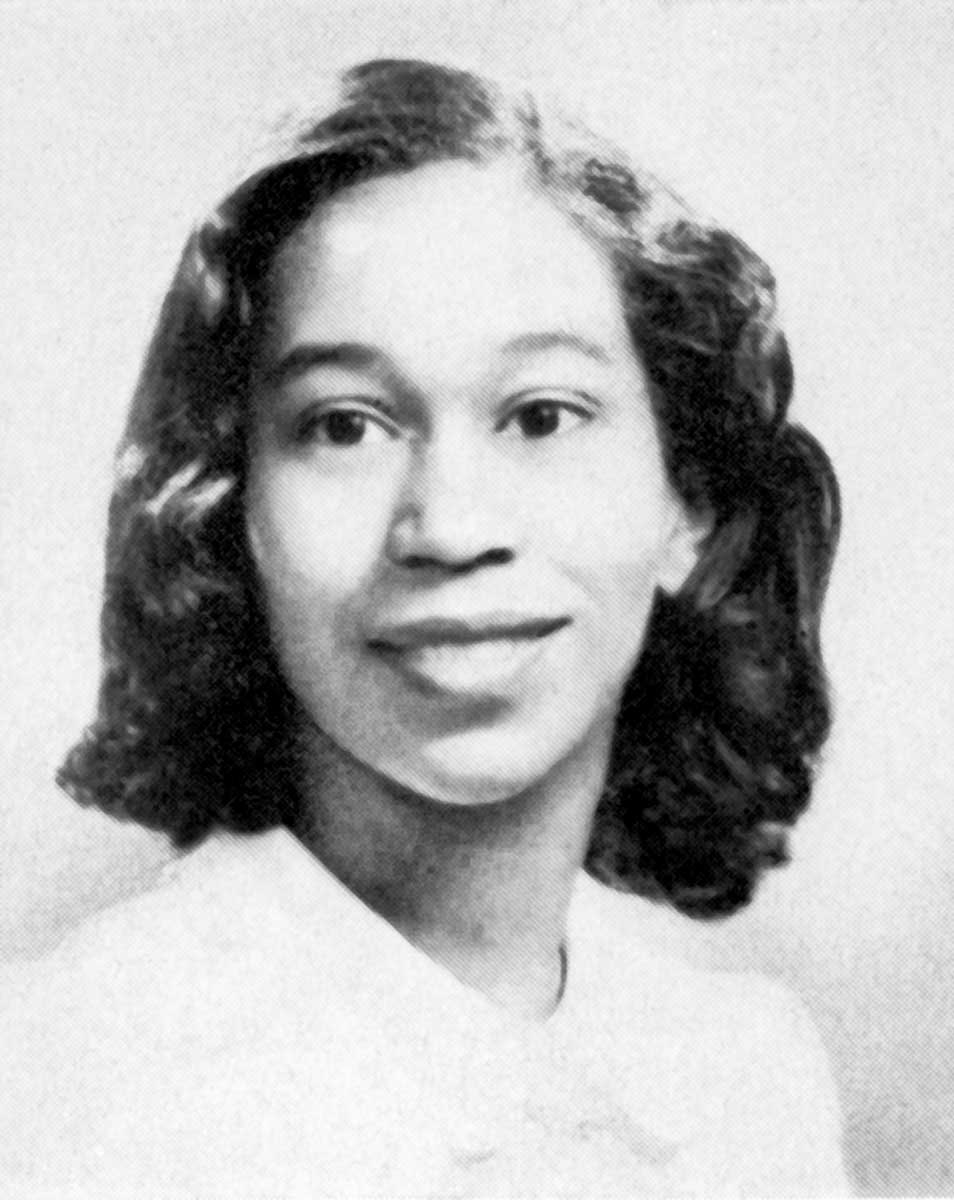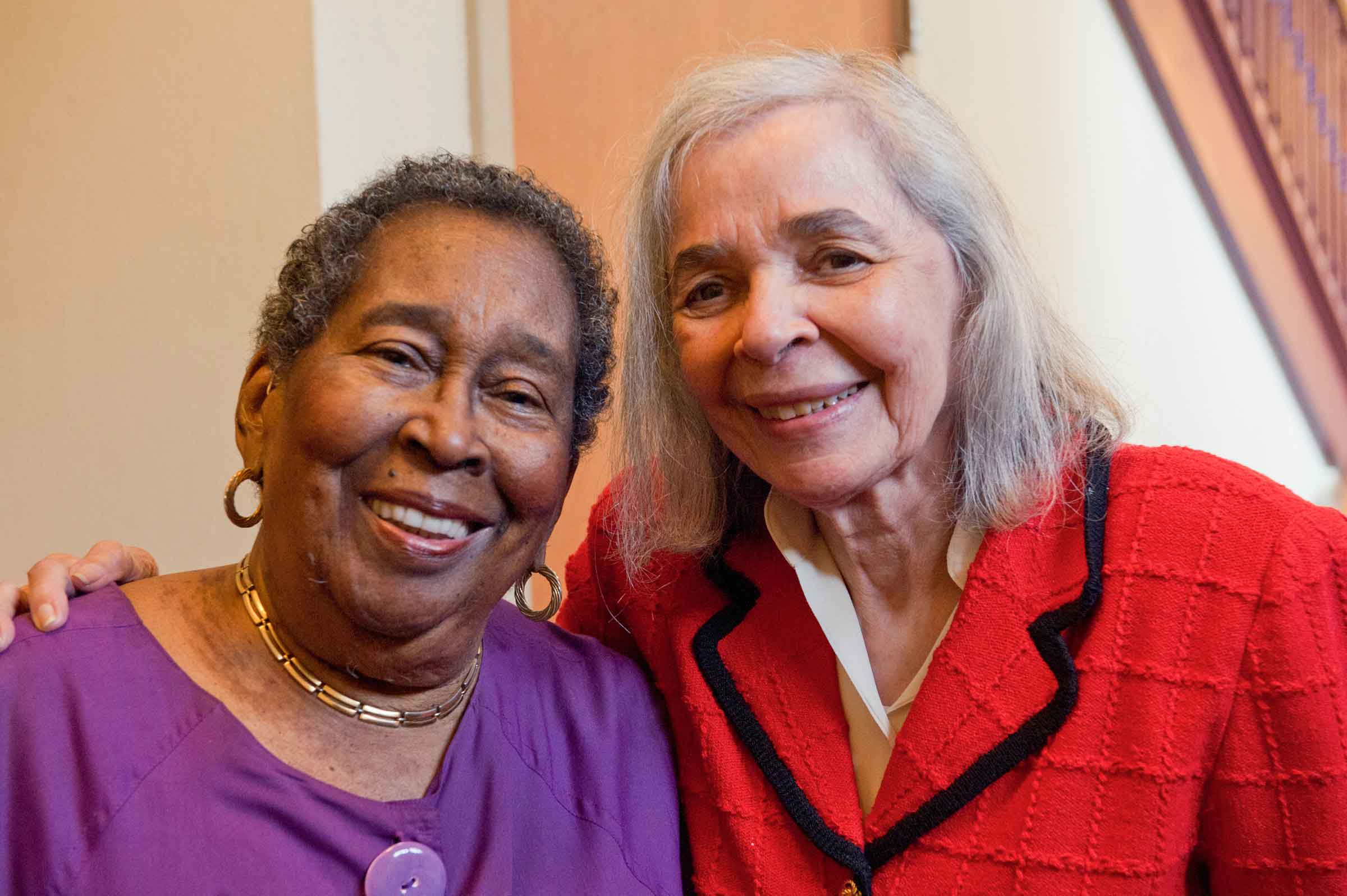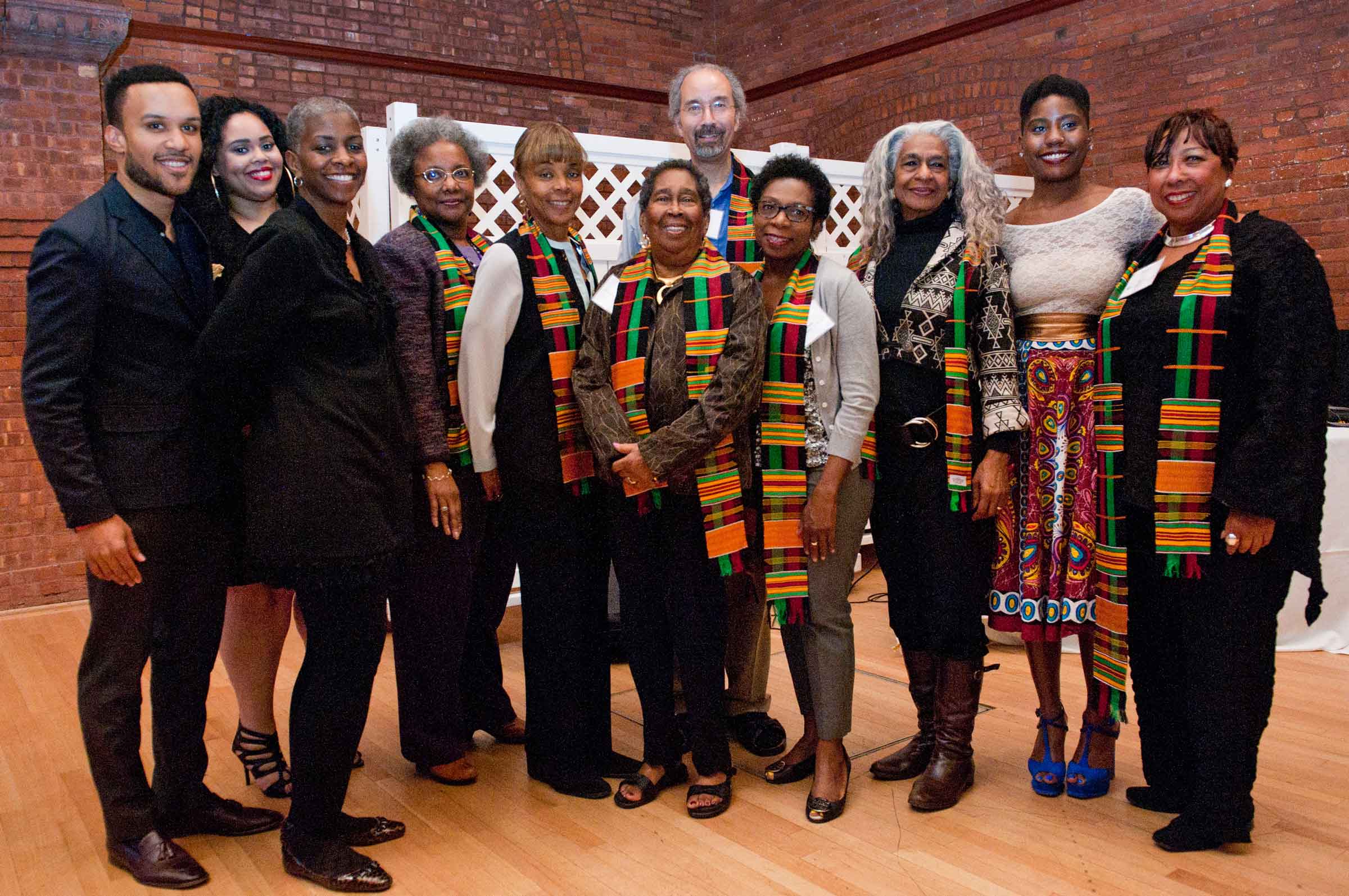We Remember June Jackson Christmas ’45-4, Groundbreaking Psychiatrist and Ardent Supporter of the Vassar Community
The Vassar community is mourning the death of Dr. June Jackson Christmas ’45-4. She died on New Year’s Eve at age 99. Her contributions to the field of mental health and to the Vassar community were vast and deep.

Photo: Karl Rabe
Throughout her career, Dr. Christmas made a significant impact on improving mental health services for vulnerable people. She founded the Harlem Rehabilitation Center, a nationally recognized program; served as principal investigator on research projects for the National Institute of Mental Health; led New York City’s mental health agency under three mayors; and led the transition of the U.S. Department of Health, Education and Welfare for Jimmy Carter.
Eric Wilson ’76, who co-chairs African American Alumnae/i of Vassar College (AAAVC) with Gwen Salley ’81, recalled that “Dr. Christmas was as regular as they came. Humble, personable, so totally lacking in pretension as to be considered old-school cool, and beyond brilliant.”

Photo: The Vassarion
Dr. Christmas was one of the first students who openly identified as Black admitted to Vassar in the late 1930s and early 1940s. (She had heard that Vassar was accepting Black students through the Episcopal church she attended in Cambridge, MA.) After graduating from Vassar with a degree in zoology, she went on to earn her medical degree from Boston University School of Medicine. She was one of only seven women in her Boston University class.
“We outright revered her,” said Richard Roberts ’74. “It was not just out of the African-inspired custom of elder reverence. It was more than that. She demonstrated Black excellence navigating the entrails of a nation born in bigotry, all the while maintaining charity for all and holding a head high. What a marvelous example for all who followed.”
Dr. Christmas taught as Clinical Professor of Psychiatry at the Columbia University College of Physicians and Surgeons, was Professor of Behavioral Science at the City University of New York School of Medicine, and served as Resident Professor of Mental Health Policy at the Heller Graduate School of Social Welfare of Brandeis University. In addition, she was a founder of the Urban Issues Group, a research institute, and co-founder of the American Psychiatric Association Committee on Black Psychiatrists. Dr. Christmas was also the first Black woman to serve as President of the American Public Health Association.
During a conversation focused on activism with author Joshunda Sanders ’00, part of the AAAVC Triennial in 2015, Dr. Christmas talked about how her experiences with discrimination had stoked her activism. In one instance, she was forced to ask a White student to book accommodations for a visitor after being denied a room. In another, she and fellow students staged a protest after being denied entry to a roller-skating rink. She wrote about such differential treatment as a writer for the Misc.

Photo: Karl Rabe
Dr. Christmas noted that she was pleased to work alongside a mixed group of students to protest injustice. “I realized that to believe in change, you don’t have to be brown or black or tan—it’s what’s in your mind. So we did a lot of educating people, going to meetings in New York City, going to meetings up here, and going down to the Catharine Street Center in the Black neighborhood trying to change minds.”
At Vassar, Dr. Christmas served as a three-time trustee and as a President’s Distinguished Visitor. She received an Alumnae/i Association of Vassar College (AAVC) Distinguished Achievement Award in 2003. Additionally, Vassar’s Africana Studies Program created the June Jackson Christmas Prize for Academic Excellence in Africana Studies, which it has awarded annually since 1995.
“Dr. Christmas made an immeasurable, positive impact on the world and on Vassar,” said President Elizabeth H. Bradley. “She was an intrepid pioneer, brilliant leader, and fierce health advocate. She was also a caring and beloved member of our community. She will be greatly missed.”

Photo: Karl Rabe
Karen Clopton ’80, who spearheaded the project Buildings and Belonging: Mapping the African American Experience at Vassar College Since 1861, which presents the history and contributions of Blacks on campus, said Dr. Christmas was “an integral contributor” to the project, and “an amazing font of knowledge.”
Often called the “Queen Mother” of Vassar’s African American community, Dr. Christmas was deeply involved with and supportive of AAAVC and formed lasting bonds with many of its members. Patricia James Jordan ’72 said, “I thank God for the valuable, countless ways that June Jackson Christmas significantly influenced and generously supported student populations, her beloved AAAVC, and the entire Vassar community.” Jordan noted that Dr. Christmas encouraged and guided her to a doctoral program in clinical psychology—almost 20 years after Jordan graduated from Vassar.
“She influenced many of us who came to know her, including some seven decades of students and alums,” Pat Neely ’75 said. “Dr. Christmas’s presence could alter the energy in a room. She was grounded and had an exceptional ability to share her knowledge and wisdom with all of us.”
Dr. Christmas is survived by her daughter, Rachel, her son Gordon, and her four grandchildren. Her husband, Walter, and her son Vincent preceded her in death.